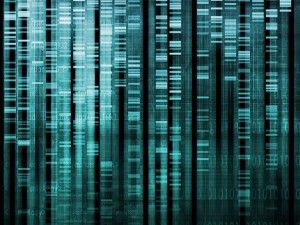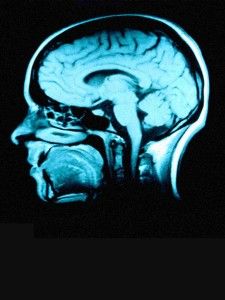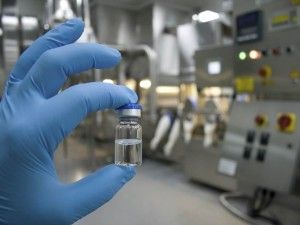Tag: biology

Human Skeletal Muscle Aging and Mutagenesis
Study based upon human skeletal muscle aging, mutagenesis, and the role of #satellite cells.
“A more comprehensive understanding of the interplay of stem cell–intrinsic and extrinsic factors will set the stage for improving cell therapies capable of restoring tissue homeostasis and enhancing muscle repair in the aged.”
Human aging has multiple effects on the human body. One of the effects of human aging is the reduction in skeletal muscle (SkM) function and a reduction in the number and activity of satellite cells (SCs), the resident stem cells. The whole genome of single SC clones of the leg muscle vastus lateralis from healthy individuals of different ages (21–78 years) was analyzed, to study the specific connection between SC aging and muscle impairment. In healthy adult muscle rapid increase of SCs is consistent with the accumulation rate of 13 somatic mutations per genome per year. Mutations typically do not happen in SkM-expressed genes because they are protected. However, as mutations in exons and promoters increase, genes involved in SC activity and muscle function are targeted which results in aging. Exons are coding sections of an RNA transcript, or the DNA encoding it, that are translated into protein. Proteins are the synthesis of molecules. A change in of a single base pair that caused the substitution of a different amino acid in the resulting protein (missense mutation) that was propagated to the muscle and detected in association with SC mutations affecting the whole tissue. #Somatic mutagenesis in SCs as a result is the driving force in the age related decline of SkM function.
Satellite Cells
Satellite cells (SCs) are a heterogeneous population of stem and progenitor cells. These cells play an important role in the growth and development of myofiber. The enlargement, regeneration, and remodeling in skeletal muscle (SkM) is the pivotal role of satellite cells. Satellite cells are dormant until they become activated through exercise or SkM injury. Upon injury skeletal muscle have a remarkable ability to recover from injury. Skeletal muscle goes through a sophisticated degeneration and regenerative process that takes place at the tissue, cellular, and molecular levels. This regenerative process relies upon the dynamic interplay between satellite cells and their environment (stem cell niche). SCs multiply further when committed to myogenic differentiation. As SCs proliferate further they begin to combine with existing SkM fibers and supply new nuclei to the growing and regenerating fibers. The declining of numbers of proliferative potential of SCs is one sign of aging in human SkMs.
A flawed SC compartment is foreseen as a major contributor for age-related deficiencies such as, skeletal muscle tissue having restricted mobility and voluntary functions. The results of such defects include a reduced capacity to respond to hypertrophic stimuli such as exercise and impaired recovery from muscle disuse and injury and the disruption of muscle tissue homeostasis. Moreover, the SCs of nonactive adult animals have been shown to contribute to differentiated fibers in non-injured muscles. Less important is the basal turnover of nuclei in adult fibers in the protection from sarcopenia. This hypothesis was tested and showed that lifelong reduction of satellite cells neither accelerated nor exacerbated sarcopenia and that satellite cells did not contribute to the maintenance of muscle size or fiber type composition during aging, but that their loss may contribute to age-related muscle fibrosis. The progressive loss of SkM mass and function known as sarcopenia affects up to 29% of the population aged 85 years. The accumulation of sarcopenia causes a highly disabling condition. It is essential, nonetheless, that the characterization of SCs in human pathology be further explored. SCs are a key factor in limiting the occurrence of fibrosis in the SkM of mice affected by sarcopenia.
The progressive loss of SkM mass and function known as sarcopenia affects up to 29% of the population aged 85 years. The accumulation of sarcopenia causes a highly disabling condition. It is essential, nonetheless, that the characterization of SCs in human pathology be further explored. Scs are key in limiting the occurrence of fibrosis in the SkM of mice affected by sarcopenia. Genome integrity is essential for the function of stem-cells. But there still must be some stability of the genome. Genetic mutations in the soma has diverse physiological roles and pathological consequences, such as the decline of stem-cell functions. Starting from the first division of the embryo, modifications in the genome extend from single-base changes (single-nucleotide variants (SNVs)) to insertions or deletions of a few bases (indels) to chromosomal rearrangements and occur during the whole life. Somatic variants are not propagated to the whole individual but to a subpopulation of cells in the body, which is strikingly different from germline variants. Adult human tissues become a mosaic of genetically different cells as a result. Furthermore, as a result of the buildup of errors taking place either during cell-division or because of environmental induced DNA damage, somatic mutation burden increases, causing age-related disease. Currently, somatic mutation burden in human SCs or SkM is unknown.
The purpose of the investigation of genetic alterations that occur with aging in the genome of human adult SCs is to use the results to clearly explain mutational processes and SC replication rate occurring in vivo in adult human muscles. The prediction of global consequences on muscle aging and sarcopenia was done by evaluating the functional effects of somatic mutations on SC proliferation and differentiation.
Results
- An accumulation of 13 mutations per genome per year that results in a 2–3-fold higher mutation load in active genes and promoters in aged SCs.
- High mutation burden correlates with defective SC function. • The accumulation of somatic mutations as an intrinsic factor contributing to impaired muscle function with aging.
- The accumulation of somatic mutations as an intrinsic factor contributing to impaired muscle function with aging.
Resources:
“Somatic mutagenesis in satellite cells associates with human skeletal muscle aging.”
Nature Communications volume 9, Article number: 800(2018) Full Abstract Study
“Satellite Cells and the Muscle Stem Cell Niche.”
Physiological Reviews Volume 93, No.1 (2013) Physiological Reviews
“Tissue-specific mutation accumulation in human adult stem cells during life.”
Nature International Journal of Science volume 538, pages 260–264 (13 October 2016) Abstract Study
“When stem cells grow old: phenotypes and mechanisms of stem cell aging”
Development for advances in developmental biology and stem cells Development 2016 143: 314 Abstract Study “Clock-like mutational processes in human somatic cells.”
Nature Genetics volume 47, pages 1402–1407 (2015) Abstract Study
Are Artificial Wombs the Future of Birth?
In April, Scientists based in Philadelphia unveiled an artificial womb undergoing testing on fetal lambs. With a prediction from one of the researchers that the technology could be ready for human testing in three to five years, artificial wombs suddenly became the most unexpected rage of 2017. But what sort of artificial wombs might realistically be a part of healthcare in the near future?
In this video series, the Galactic Public Archives takes bite-sized looks at a variety of terms, technologies, and ideas that are likely to be prominent in the future. Terms are regularly changing and being redefined with the passing of time. With constant breakthroughs and the development of new technology and other resources, we seek to define what these things are and how they will impact our future.
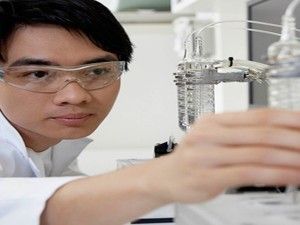
Death Reversal — The Reanima Project — Research Whose Time Has Come
I have spent the last 30 years in various aspects of the biopharmaceutical industry, which for the most part has been a very rewarding experience.
However, during this time period, having been immersed many different components of therapeutic development and commercialization, one thing has always bothered me: a wide array of promising research never makes it off the bench to see the translational light of day, and gets lost in the historical scientific archives.
I always believed that scientific progress happened in a very linear narrative, with each new discovery supporting the next, resulting ultimately in an eventual stairway of scientific enlightenment.
What the reality turned out to be was much more of a fragmented, research “evolutionary tree”, with dozens of potential pathways, only very few branches of which ever resulted in scientific maturity, and not always the most fruitful ones by any means.
The premature extinction of these promising discovery pathways were the result of a variety of factors, including, but not limited to, funding priorities, competing industrial interests, “out of vogue” concepts, lack of intellectual properties, non-existent regulatory models, conflicted legislative initiatives, and even religious implications.
In 2016, as in previous years, we continue to see these “valleys of death” swallow up pathways of scientific possibility, with few popular segments attracting the majority of attention and support.
The preponderance of resources focused on the somatic mutation model of carcinogenesis, despite an endless range of research highlighting that the disease is extremely heterogenic and rarely ever follows such a clonal model, is one example that continues to be inappropriately manifested in the oncology system, decades into the “war on cancer”.
On a similar plane, the jettisoning of most studies of the biophysical aspects of human genetics, despite the gross incompleteness offered by the central dogma to explain higher biological form and function, is another example that has become all too pervasive in the research community.
And then there are the areas of human consciousness, memory, and information processing / storage, where in many ways we are still operating in the dark ages, with materialists and dualists battling it out for centuries.
One topic that I have written quite a bit about is that of death, specifically that of the death of the human brain — http://www.singularityweblog.com/is-death-reversible/
While I am a staunch supporter and advocate of the life-extension / anti-aging movement, I am equally vocal about our need to develop technologies, products, and services that can actually reverse our ultimate transition between the living and dead states, a transition that occurs annually for 60 million humans around the globe.
Death, however, is unfortunately seen by many as a natural, biological progression for human beings, and in many circles, deemed an unnecessary area of scientific research and exploration.
I beg to differ.
Far too often, death arrives too early and too unexpectedly for many of us and our loved ones. And the best modern medicine has to offer today is “Sorry. There is nothing else we can do.”
But what if there was?
There are a variety of species across the natural world that are capable of regenerating and repairing themselves from forms of severe CNS damage that bring them to the transitional grey zone between life and death. Along the evolutionary timeline however, this ability gradually disappeared hundreds of millions of years ago and does not manifest in higher species.
Now, in the 21st century, with the convergence of the disciplines of regenerative biology, cognitive neuroscience, and clinical resuscitation, we may finally be poised to take back these capabilities for humans.
Over the years, clinical science has focused heavily on preventing such life and death transitions and made some initial progress with suspended animation technologies, such as therapeutic hypothermia. But once we transition through the brain death window, currently defined by the medical establishment as “irreversible” (per the 1968 Ad Hoc Committee of the Harvard Medical School definition), we are technically no longer alive.
To add insult to injury, a human can be declared dead, even while our bodies can still circulate blood, digest food, excrete waste, balance hormones, grow, sexually mature, heal wounds, spike a fever, and gestate and deliver a baby. It is even acknowledged by thought leaders that recently brain dead humans still may have residual blood flow and electrical nests of activity in their brains, just not enough to allow for an integrated functioning of the organism as a whole.
Several prominent cases in the media over the past few years have further served to highlight the current situation, as well as the substantial anatomical and functional differences between the state known as brain death, and other severe disorders of consciousness, such as coma, and the vegetative and minimally conscious states.
It is now time to take the necessary steps to provide new possibilities of hope, in order to counter the pain, sorrow, and grief that is all too pervasive in the world when we experience a loved one’s unexpected or untimely death, due to lesions which might be potentially reversible with the application of promising neuro-regeneration and neuro-reanimation technologies and therapies.
It is time to undertake the required research, based on 2016 technological knowledge, in order to bring about such transformational change.
My name is Ira S. Pastor and I am the CEO of the biotechnology company Bioquark Inc.
Welcome to the unveiling of the Reanima project.
FM-2030: What is the Future of Democracy? Part 2
The audio in this archive file was compiled from a 1984 meeting of futurists, transhumanists, and progressives. The main topic of the meeting was the most appropriate ways to engage or advance these philosophies within government. For example, one significant point of discussion centered around whether running for office was an effective way to drive change.
In the course of the discussion, the primary viewpoint FM-2030 espoused was that some aspects of government — especially the concept of leadership — would become obsolete or be replaced by other aspects of society (see Part 1). However, he also expressed what he believed the core of a ‘true’ democracy might look like. This archive file is assembled from excerpts of that section of the discussion.
FM-2030: What is the Future of Democracy? Part 1
The audio in this archive file was compiled from a 1984 meeting of futurists, transhumanists & progressives. The main topic of the meeting was the most appropriate ways to engage or advance these philosophies within government. For example, one significant point of discussion centered around whether running for office was an effective way to drive change.
The excerpts in this archive file collect many of futurist FM 2030’s thoughts over the course of the discussion.
About FM 2030: FM 2030 was at various points in his life, an Iranian Olympic basketball player, a diplomat, a university teacher, and a corporate consultant. He developed his views on transhumanism in the 1960s and evolved them over the next thirty-something years. He was placed in cryonic suspension July 8th, 2000.
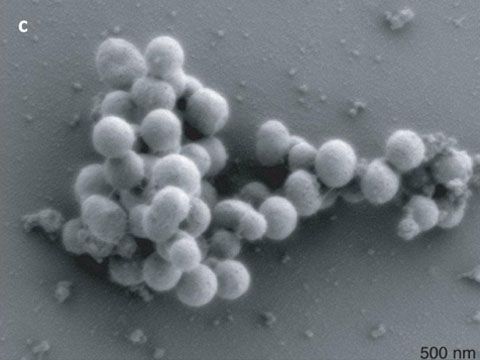
Open Source SynBio?
“I can imagine designing simple animal forms that provide novel sources of nutrients and pharmaceuticals, customizing human stem cells to regenerate a damaged, old, or sick body. There will also be new ways to enhance the human body as well, such as boosting intelligence, adapting it to new environments such as radiation levels encountered in space, rejuvenating worn-out muscles, and so on”
The Global Brain and its role in Human Immortality
It would be helpful to discuss these theoretical concepts because there could be significant practical and existential implications.
The Global Brain (GB) is an emergent world-wide entity of distributed intelligence, facilitated by communication and the meaningful interconnections between millions of humans via technology (such as the internet).
For my purposes I take it to mean the expressive integration of all (or the majority) of human brains through technology and communication, a Metasystem Transition from the human brain to a global (Earth) brain. The GB is truly global not only in geographical terms but also in function.
It has been suggested that the GB has clear analogies with the human brain. For example, the basic unit of the human brain (HB) is the neuron, whereas the basic unit of the GB is the human brain. Whilst the HB is space-restricted within our cranium, the GB is constrained within this planet. The HB contains several regions that have specific functions themselves, but are also connected to the whole (e.g. occipital cortex for vision, temporal cortex for auditory function, thalamus etc.). The GB contains several regions that have specific functions themselves, but are connected to the whole (e.g. search engines, governments, etc.).
Some specific analogies are:
1. The Broca’s area in the inferior frontal gyrus, associated with speech. This could be the equivalent of, say, Rubert Murdoch’s communication empire.
2. The motor cortex is the equivalent of the world-wide railway system.
3. The sensory system in the brain is the equivalent of all digital sensors, CCTV network, internet uploading facilities etc.
If we accept that the GB will eventually become fully operational (and this may happen within the next 40–50 years), then there could be severe repercussions on human evolution. Apart from the fact that we could be able to change our genetic make-up using technology (through synthetic biology or nanotechnology for example) there could be new evolutionary pressures that can help extend human lifespan to an indefinite degree.
Empirically, we find that there is a basic underlying law that allows neurons the same lifespan as their human host. If natural laws are universal, then I would expect the same law to operate in similar metasystems, i.e. in my analogy with humans being the basic operating units of the GB. In that case, I ask:
If, there is an axiom positing that individual units (neurons) within a brain must live as long as the brain itself, i.e. 100–120 years, then, the individual units (human brains and, therefore, whole humans) within a GB must live as long as the GB itself, i.e. indefinitely.
Humans will become so embedded and integrated into the GB’s virtual and real structures, that it may make more sense from the allocation of resources point of view, to maintain existing humans indefinitely, rather than eliminate them through ageing and create new ones, who would then need extra resources in order to re-integrate themselves into the GB.
The net result will be that humans will start experiencing an unprecedented prolongation of their lifespan, in an attempt by the GB to evolve to higher levels of complexity at a low thermodynamical cost.
Marios Kyriazis
http://www.elpistheory.info

